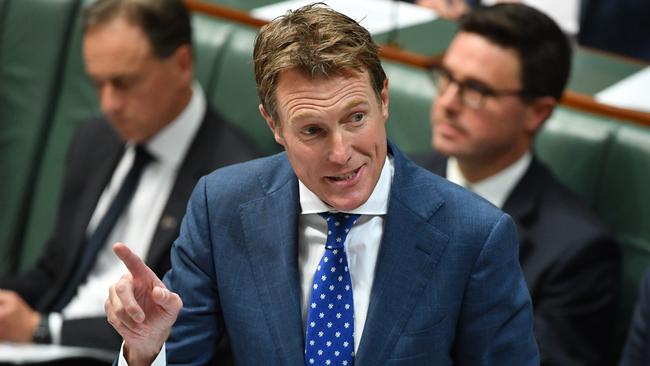Attorney-General hits back over business and union opposition to religious discrimination bill
Attorney-General Christian Porter has strongly rejected concerns expressed by the ACTU and the Australian Industry Group.

Employers and unions have jointly demanded changes to the government’s updated religious discrimination bill, warning the proposed laws risk limiting the ability of companies to protect workers from bullying and harassment at work.
But Attorney-General Christian Porter strongly rejected the concerns expressed by the ACTU and the Australian Industry Group, accusing them of “badly” misstating the effect of the bill.
In a letter to Mr Porter, Ai Group chief executive Innes Willox and ACTU assistant secretary Liam O’Brien said the bill would damage workplace harmony, reduce tolerance for religious diversity and, “most concerningly”, risk harm to staff and customers.
While supporting protections for people against discrimination on the grounds of religious belief or activity, Mr Willox and Mr O’Brien said they were troubled the bill was a major departure from the approach taken in other anti-discrimination laws.
“It applies onerous limitations in some workplaces, while conferring extensive positive rights to discriminate on religious grounds in others,” they said.
“This approach is confusing, inappropriate and unfair.”
The duo called for the removal of the bill’s “statement of belief” provisions, which they said prevented employers from setting standards of conduct limiting an employee’s ability to make “intimidatory or offensive” statements about religion.
Under the bill, a person’s right to make a “statement of belief” explicitly overrides all federal, state and territory anti-discrimination laws. The Ai Group and the ACTU said they were concerned the provisions were inconsistent with employer obligations under existing workplace, work health and safety and anti-discrimination laws.
They said employers were currently required to ensure workers were not exposed to risks to health and safety, including risks to psychological health, arising from work carried out by the business.
Safe Work Australia guidance says work-related psychosocial hazards such as “workplace bullying, aggression, harassment including sexual harassment, discrimination, or other unreasonable behaviour by co-workers, supervisors or clients” must be managed by employers as far as reasonably practicable.
But the ACTU and Ai Group said the amended bill did not adequately preserve an employer’s ability to set standards of workplace behaviour to satisfy work health and safety obligations.
“Limiting employers’ rights to take reasonable steps to protect workers is incredibly problematic and presents serious legal, reputational and operational risks for Australian businesses,” they said. “We consider these provisions are unnecessary, unworkable and will cause harm, disputation and confusion in Australian workplaces.”
Mr Porter said the bill did not confer a positive right to discriminate. It imposed limitations on business “because … it will make it unlawful to treat others adversely on the basis of their religion”.
He said the letter suggested a statement of belief allowed someone to intimidate or bully someone else and suggests it might permit sexual harassment.




To join the conversation, please log in. Don't have an account? Register
Join the conversation, you are commenting as Logout